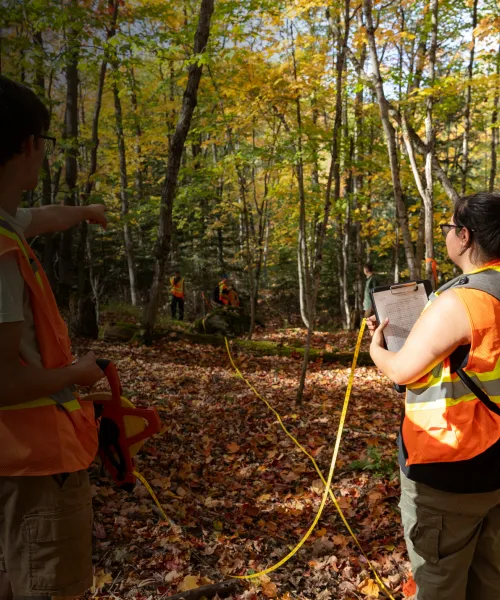
Meet our Faculty and Staff
The faculty and staff of our department are dedicated to helping our students achieve their goals at NMU while planning for the future. We believe in providing a broad, rigorous academic background that includes field experiences and hands-on learning opportunities.

Explore Department Facilities
The Earth, Environmental and Geographical Sciences classroom spaces, labs, and faculty offices span across two buildings: Weston Hall and The Science Building. These facilities host a combined GIS and a remote sensing lab.

EEGS Alumni and Friends
NMU faculty, staff, and administrators remain committed to serving our alumni and friends, whether you crossed the commencement stage last year or decades ago. We hope to see you back on campus for a visit, but if that’s not possible, stay connected virtually.

Giving to the Department
The Earth, Environmental and Geographical Sciences Department has several initiatives to give our students hands-on learning and research experiences. We invite you to support the departments’ fundraising initiatives.

Department Bylaws
Faculty in the Earth, Environmental and Geographical Sciences Department abide by a set of bylaws that set forth key rules and operating procedures.

Our History
The EEGS department is rooted in Geography. In fact, geography was one of the original subjects taught when the State Board of Education created Northern State Normal School on July 14, 1899. The first geography courses were taught by Martha B. Ackermann.


